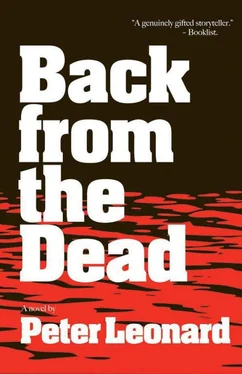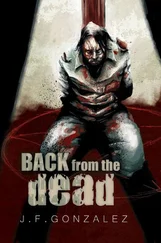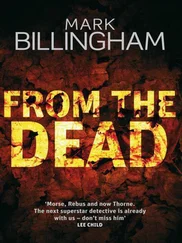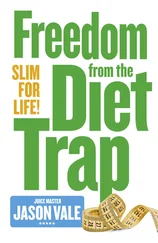Franz had been waiting in the train station for the better part of three days. Ever since Ernst Hess had phoned and said he needed Franz’s assistance with an extremely delicate but important mission. Franz was stunned to hear his voice and afraid to get involved. Ernst Hess was a fugitive. Anyone who helped him in any way would be prosecuted. But Ernst Hess had also been instrumental, both financially and philosophically, in the rise of the neo-Nazis. He replayed the conversation in his head.
“Franz.”
“Yes, who is this please?”
“Ernst Hess.”
He had paused, not sure what to say, at first thinking one of his friends was playing a joke. “Herr Hess, is this really you?” A dumb thing to say, but it slipped out.
“No, it is the Führer. I’ve come back from the dead. Of course it is me, you idiot.” The belligerent tone confirming it. “I need your help.”
“Of course, anything.”
“I want you to go to the train station first thing in the morning.”
Franz was an electrician. He had jobs lined up the next day and all week. “For how long?”
“As long as it takes,” Hess said, voice firm. “It could be several days.”
“Several days? Herr Hess, I have responsibilities.”
“You have responsibilities to me,” Hess said, raising his voice.
Hess explained what he wanted Franz to do, but made no offer to pay him for the work he was going to lose. Franz was married with two teenage children. How was he going to explain this to his wife? Franz had been the master of ceremonies at a few Blackshirt rallies. He enjoyed the notoriety. But going out for an evening was one thing. Devoting work hours to the Cause was something else. But there was no way he could refuse Ernst Hess. Refuse, and Hess might have him killed.
The blonde was opening locker 48, removing a parcel wrapped in brown paper. She turned, their eyes met. She looked away, walked out of the room. He got up and followed her and then it hit him. This was Colette Rizik, the journalist.
He followed her out to the taxi queue, stood behind her in line, and had his taxi follow hers to Schwabing. Colette got out at Wagnerstrasse 12. The driver opened the trunk, handed her the parcel that was in the locker, put her suitcase on the sidewalk and drove off. Franz watched Colette enter the apartment building.
Colette opened her apartment door, stepped in with the suitcase, put it on the floor and locked the door. She moved through the salon to the window, glanced through a crack in the drapes, scanned the sidewalk and street, looking for the man at the train station. She saw him follow her from the lockers out to the taxi queue, then saw him behind her in line.
Could it all have been coincidence? Possibly. After all that had happened Colette was understandably jittery. A young couple walked by her building and she saw a car pass, but she didn’t see a thin dark-haired man wearing glasses with round metal frames.
Colette went in the kitchen, turned on the light over the table, and placed the package under it. She went into her darkroom and came back to the table with a razor blade and made an incision across one of the hard narrow sides of the package and pulled the paper off. It was a painting, bright colors, a man standing between two trees. It was signed ‘Vincent’. She phoned Gunter, her editor at Der Spiegel, and described the painting.
“It sounds like The Painter on the Road to Tarascon by Van Gogh. It was supposedly lost in a museum that was bombed by the Allies during the war. Where did you get it?”
“Ernst Hess left it in a locker at the train station in Munich.”
Hess walked to the shopping center, rented a box at the post office and phoned Ingrid at her apartment in Munich. She had picked up the money. No one, to her knowledge, had seen or followed her. Hess gave Ingrid the Pompano Beach box number and address. “Send it to Max Hoffman.”
She said he would receive the package on the 27th. Was that all right? No, but what choice did he have? Hess said he would contact her when it arrived.
He bought a Palm Beach Post and read it, sipping coffee at a restaurant on South Atlantic Boulevard. On page 3 a headline caught his eye: Murder Stuns Palm Beach Residents. There was an artist sketch of the suspect. Hess studied it, a face under a cap with a wide nose and three days of whiskers, and decided it looked nothing like him. The article went on to say that a forty-one-year-old Palm Beach woman had been strangled in her home on Seabreeze Avenue. Palm Beach police were investigating. Nothing further on the abandoned Hatteras.
Hess had an idea and went back to the shopping center and bought a bottle of Macallan’s for himself and a bottle of Canadian Club for Max. Then he went next door to the supermarket and picked up two porterhouse steaks. He would arrive bearing gifts.
At 12:15, Hess crossed the bridge, went north on NE 26th Avenue to 5th Street and went right through a residential neighborhood of single-storey houses painted soft pastel colors and built on small treeless lots.
Max’s house was at the end of the street on the Intracoastal. To the north was a vacant lot with a For Sale sign on it. To the south was a house, Max’s nearest neighbor. It was a hot day and Hess was perspiring when he arrived at Max’s front door, holding a bag of groceries against his chest, and rang the bell.
Hess watched former Sonderkommando Max Hoffman floating on an orange vinyl pool raft. Max was in good shape for a man fifty-four years old, barrel chest and flat stomach covered with grey hair that looked like a dove-colored sweater. He would drift around, eyes closed, occasionally pushing himself away from the side of the pool. Or he would slide off the raft into the cool blue depths, and come back up wiping water out of his eyes, saying, “Harry, come on. You don’t know what you’re missing, get in here.”
“I’m fine,” Hess would say from his chair on the pink patio, watching the endless parade of boats move past on the waterway. “Perfectly content right here.”
There was an apartment building with a swimming pool directly across the Intracoastal, thirty meters away, retirees lounging under wide-brimmed hats and umbrellas, two couples at a table, playing cards. Hess, expecting quiet and seclusion, was surprised by all of the activity. Max, in the shallow end, climbed out of the pool, grabbed a striped beach towel off a chair, dried himself and took a seat next to Hess.
“What I tell you? Not bad, uh?” Max said, swinging his arm open like an impresario, indicating the pool, the house, the property.
Hess nodded, the nod answering both questions in the affirmative.
“I wish Ellen, God bless her, had lived long enough to enjoy it with me. If my fellow teachers at Rocky River high could see me now.”
Hess didn’t think the modest house built on a treeless lot on the busy polluted Intracoastal warranted such praise.
“I taught history, I think I told you, and also accounting. I used to say to the kids: ‘Assets equal liabilities plus proprietorship. What? Assets equal liabilities plus proprietorship. What are you going to say to me on the street in thirty years?’” Max was beaming. “I have to tell you, I miss it.” He paused to reminisce. “How about a dividend?” Pointing at Hess’ empty cocktail glass.
“Only if you’re having one.”
“Twist my arm,” Max said, getting up and grabbing Hess’ glass off the round plastic table that had an umbrella through the middle, and disappeared in the house.
Max was a lot more personable and outgoing on familiar turf. That, or he was getting more comfortable with Hess. Ernst was standing at the edge of the waterway, admiring a seventy-foot pleasure yacht, two shapely blondes in bikinis sunbathing on the aft deck, when Max returned with the drinks. Three fingers of Macallan’s for Hess and a dark lowball cocktail for himself.
Читать дальше












